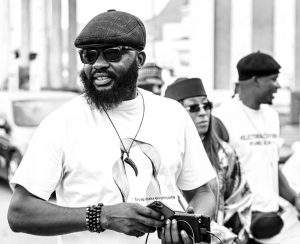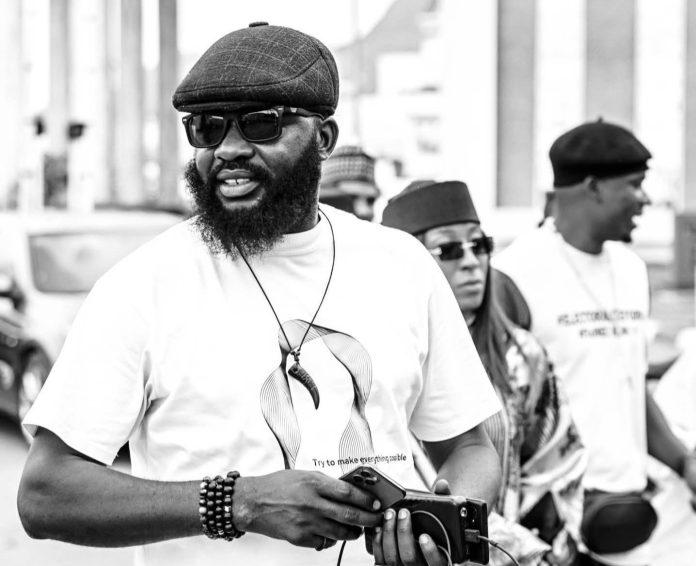
Today, the calendar turns to another October 1st. The air, thick with harmattan dust and a heavier, more profound despair, is supposed to be filled with the sounds of celebration. Green and white flags are meant to flutter with pride, and speeches are crafted to echo with the hollow rhetoric of “unity and progress.” But across the length and breadth of this nation, from the choked metropolises of Lagos and Abuja to the silent, terrorized villages of the hinterlands, a single, painful question hangs in the air, unanswered and suffocating: What, exactly, are we celebrating?

We are not celebrating freedom. We have merely exchanged one colonial master for a legion of homegrown tyrants, clad in agbada and armed with greed so profound it threatens to swallow the very soul of our nation. The chains are no longer forged from foreign steel; they are woven from the fabric of our own betrayed hopes, the relentless looting of our commonwealth, and the brutalization of our collective spirit.
Look around you. Is this the dream that danced in the hearts of our founding fathers as they watched the Union Jack descend and our own green-white-green ascend? Is this the “independent” Nigeria Zik, Awo, and Ahmadu Belllo fought for? A Nigeria where the only thing that unites us is a shared, corrosive suffering?
What is independence when a journey from Abuja to Kaduna is a gamble with death? When farmers, the very lifeblood of our nation, are afraid to till the soil that has nourished us for generations, for fear of being slaughtered or kidnapped for ransom? Our highways have become theatres of terror, our schools, morose assembly lines for hostages. We celebrate Independence Day while thousands of our citizens—fathers, mothers, children—languish in dank forests, their freedom priced in millions of Naira, their dignity stripped away. The sound of celebratory cannon fire is drowned out by the weeping of families who have emptied their life savings to buy back their loved ones from the clutches of monsters. This is not independence; it is a national captivity.
The fragile tapestry of our unity, so carefully stitched together at independence, is now frayed and torn, threatening to unravel completely. We are no longer Nigerians; we are hyphenated citizens—Igbo-Yoruba-Hausa, Christian-Muslim, Northerner-Southerner. Our political leaders, the very architects of this division, fan the embers of ethnicity and religion, not to build a nation, but to secure their own tenuous grip on power. They have weaponized our differences, turning brother against brother, so we do not see the common enemy—the political class that has systematically impoverished us all. We are a chorus of discord, each group singing a mournful song of marginalization and neglect. What unity do we celebrate when the very idea of “One Nigeria” feels like a cruel joke?
Go to the markets, and you will see the true face of our independence. It is in the hollow eyes of a mother staring at a bag of rice that costs more than her monthly income. It is in the resigned slump of a father’s shoulders as he calculates how to feed five with a meal meant for one. The prices of foodstuffs are not just increasing; they are skyrocketing into the stratosphere, placing basic sustenance beyond the reach of the average Nigerian. This is not mere inflation; it is an economic siege on the masses. Our Naira is a pitiful shadow of itself, and our purchasing power has been vanquished. We are asked to celebrate while our children go to bed hungry, their futures mortgaged by a system that cares nothing for their potential.
And at the heart of this sorrowful symphony are the “leaders.” The so-called representatives of the people who have become our collective nightmare. They have turned our treasury into a personal piggy bank, looting with an audacity that is both breathtaking and soul-crushing. They travel in convoys of bulletproof cars, insulated from the harsh realities they have created. They fly in private jets over landscapes of poverty they have engineered. They allocate to themselves obscene salaries and allowances while the minimum wage for the worker remains a subject of protracted, humiliating debate. They have stolen our today and are actively pilfering our tomorrow. What do we celebrate? Their impunity? Their grand theft?
Today, as the sirens wail for the “dignitaries” heading to the Eagle Square, let them know it is a dirge for our nation. The green-white-green flag does not fly in triumph; it flies at half-mast over the grave of our collective aspirations. We are not a nation celebrating 65 years of independence; we are a people marking 65 years of a promise deferred, a potential squandered, and a dream relentlessly betrayed.
So, no, we will not celebrate. We will mourn. We will grieve for the Nigeria that could have been. We will sit in quiet contemplation of the pain, the hardship, and the sheer injustice that has become our daily bread. This October 1st, let our silence be more powerful than their empty speeches. Let our sorrow be a testament to the great nation we have lost. And perhaps, from the depths of this profound sorrow, a new, fierce, and determined resolve will be born—the resolve to truly fight for the independence we were promised, but have never, ever known.
